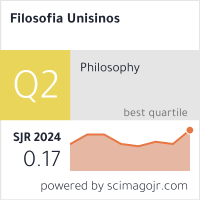Twenty-five years in: Landmark empirical findings in the cognitive science of religion
DOI:
https://doi.org/10.4013/fsu.2018.193.07Resumen
Religious studies’ collective advocacy on behalf of diversity and inclusion stands in poignant contrast to its persisting exclusionary ethos (within most quarters of the field) concerning questions of method. A legacy of prohibitions in religious studies about who can study religions and about how they must proceed when doing so has tended to curb innovation. Born of protectionism or special pleading or outright religious impulses, such prohibitions have skewed the field in favor of the idiosyncratic over the recurrent, of the idiographic over the systematic, and of the interpretive over the explanatory. My long-standing interest in the promise of the cognitive sciences for studying religion has been, in part, to redress those imbalances. Redressing imbalances, however, does not involve dismissing the idiosyncratic, the idiographic, or the interpretive, but only suggests, first, that they are not the whole story and, second, that greater attention to the recurrent, the systematic, and the explanatory will enrich – not eliminate – our understandings and our inquiries. The first of those two propositions follows from the second. My aim in this paper is to substantiate that second proposition.
Keywords: cognitive science of religion, explanatory pluralism, interpretive exclusivism, empirical findings.
Descargas
Métricas
Descargas
Publicado
Cómo citar
Número
Sección
Licencia
Concedo a revista Filosofia Unisinos – Unisinos Journal of Philosophy o direito de primeira publicação da versão revisada do meu artigo, licenciado sob a Licença Creative Commons Attribution 4.0 (que permite o compartilhamento do trabalho com reconhecimento da autoria e publicação inicial nesta revista).
Afirmo ainda que meu artigo não está sendo submetido a outra publicação e não foi publicado na íntegra em outro periódico e assumo total responsabilidade por sua originalidade, podendo incidir sobre mim eventuais encargos decorrentes de reivindicação, por parte de terceiros, em relação à autoria do mesmo.










